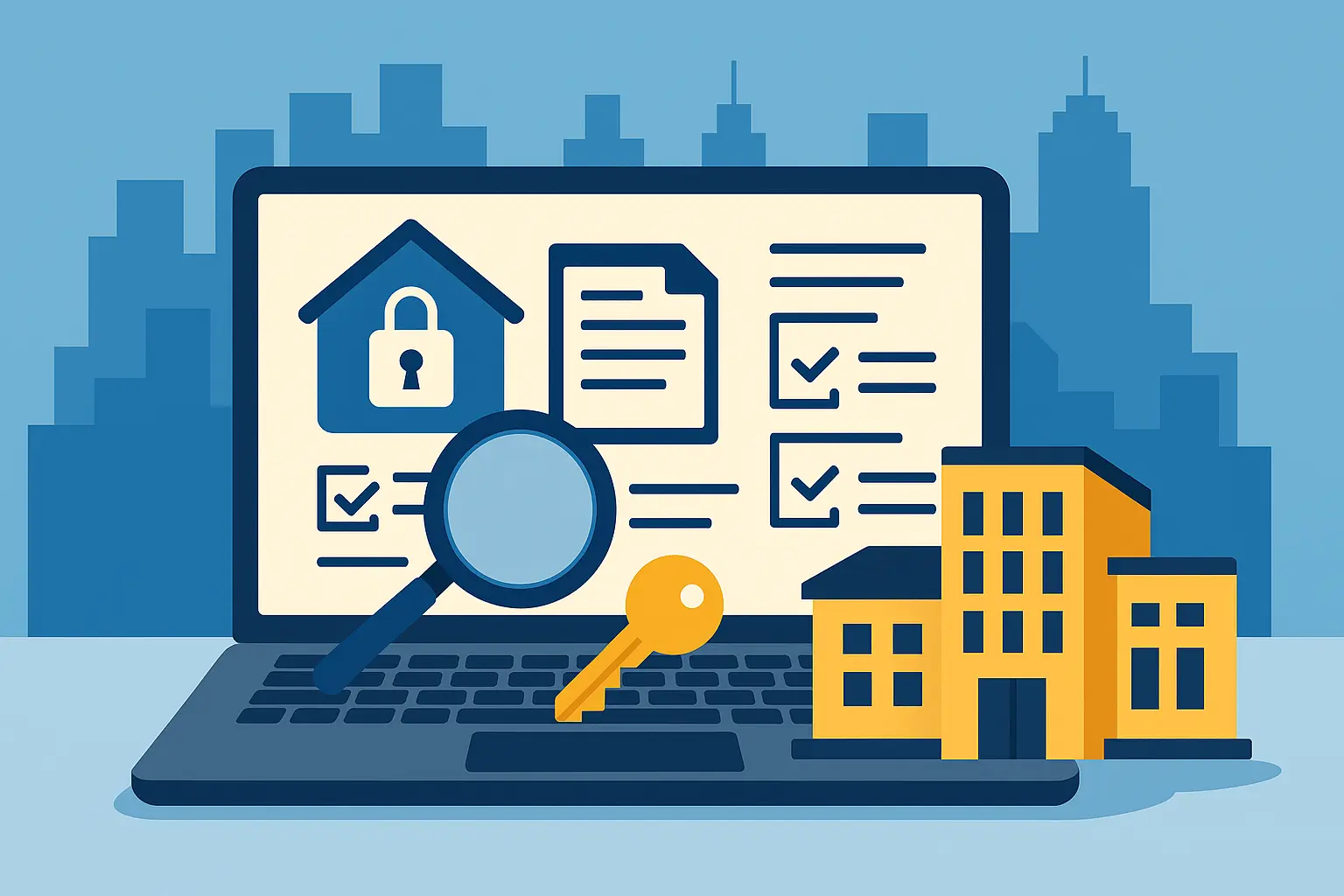You wouldn’t buy a car or house without properly examining your purchase. So why would you purchase commercial real estate without doing your due diligence? Perhaps because the task is onerous, and there is so much involved. Simplify the task by using a tool like a virtual data room.
Virtual data rooms are especially useful for complex transactions such as acquisitions, where thorough due diligence and efficient document management are critical.
What is commercial real estate?
Commercial real estate is one of two primary types of real estate (the other being residential).
According to Investopedia:
“Commercial real estate (CRE) is property that is used exclusively for business-related purposes or to provide a workspace.”
Some examples of commercial real estate include:
- Office space
- Hotels
- Malls
- Restaurants
- Health care facilities
If you rent out residential space for profit, it’s considered commercial real estate, too.
Essentially, if it is involved in commerce, then it is commercial.
What solutions does the virtual data room offer for real estate firms?
To start with, let’s first define what a real estate data room is.
Data room software, or a virtual data room (VDR), is software that allows users to store and share sensitive information online in a secure place.
The basics
To be considered a VDR, a product must:
- Ensure secure storage and distribution of content and data
- Provide basic security measures (think encryption, two-factor authentication, watermarks, and single sign-on controls)
- Customize, verify, track, and enforce permissions
A good VDR, however, will come with more than just the basics.
The extras
Some of the extra features available in a virtual data room include:
- The ability to carry out real estate due diligence
- Real-time activity reports to keep you in the loop
- Live chat for support should a problem arise
- Audit logs for security and compliance
- Zoom integration for real-time facility tours
- Drag-n-drop document collection for ease of use
- Large storage volume and support of multiple file formats, allowing to upload real estate tours to a data room
- Optical character recognition for automating data extraction from a scanned document or image file
- E-Signatures so you can electronically sign documents online securely within the data room
- The ability to share information with multiple groups at the same time while keeping those parties unaware of each other
- Single platform management enabling real estate professionals to handle all documents and communications in one place, streamlining the due diligence process
Benefits of a data room for real estate due diligence
You use a virtual data room for real estate due diligence for the same reason you use a VDR for anything else.
First off, it’s convenient. In particular, it allows you to:
- manage all of your projects in one place
- share documents
- conduct due diligence
- store all of your data securely
Submit requests, send secure messages, and receive information in one place – thus eliminating the need for email, Excel, and anything else that would require extra attention to track and keep in order.
Invite third parties in and let them view, share, and even edit files securely — all in a space you control. A VDR can enhance collaboration among sellers, buyers, brokers, and investors by streamlining communication and coordination throughout the transaction. It also simplifies the process for potential investors by providing them with easy access to all necessary information during due diligence.
Applications in Asset Management and Portfolio Management
Virtual data rooms have become indispensable tools for asset management and portfolio management in the real estate sector. By providing a centralized platform, these data rooms allow asset managers to efficiently store, organize, and manage sensitive documents and data related to various real estate projects. This centralized approach not only streamlines document management but also enhances collaboration among real estate professionals, enabling teams to work together seamlessly on asset portfolios regardless of their physical location.
With top-notch security features, virtual data rooms help asset managers safeguard sensitive information and prevent data leaks, ensuring that only authorized users have access to confidential documents. This level of security is crucial for maintaining compliance with industry regulations and protecting the interests of stakeholders. Additionally, the ability to manage and track documents in real time allows asset managers to make informed decisions quickly, improving the overall efficiency and success of portfolio management activities. By leveraging virtual data rooms, real estate professionals can focus on maximizing the value of their assets while minimizing administrative burdens and security risks.
Private Equity and Property Deals
In the fast-paced world of private equity and property deals, virtual data rooms are essential for secure document sharing and effective collaboration among multiple parties. These platforms offer a secure place for investors, buyers, and sellers to access and review necessary documents—such as environmental reports, construction plans, and other confidential documents—throughout the due diligence process. With instant access to essential documents, stakeholders can move through the diligence process more efficiently, reducing delays and minimizing the risk of errors.
Virtual data rooms also support real-time collaboration, allowing all parties involved in a transaction to communicate, share feedback, and make decisions with confidence. This transparency is especially valuable in complex property deals, where multiple parties need to review and approve documents quickly. By centralizing all necessary documents and providing secure access, virtual data rooms enhance the overall confidence and transparency of the deal-making process, ensuring that every stakeholder has the information they need to make informed decisions and close deals successfully.
Security and Compliance Features
Security and compliance are at the core of every reputable virtual data room. These platforms are equipped with advanced security features designed to protect sensitive data and ensure that real estate transactions meet regulatory requirements. Two-factor authentication, role-based access permissions, and robust encryption protocols are standard in most virtual data rooms, preventing unauthorized access to confidential information.
Administrators can easily manage access permissions through a centralized platform, granting or revoking rights to view, edit, or share documents as needed. This granular control over document access not only helps maintain regulatory compliance but also reduces the risk of data breaches and unauthorized disclosures. For real estate professionals, these advanced security features provide peace of mind, knowing that their transactions and sensitive data are protected at every stage of the process.
Virtual data room providers
Many virtual data room providers have recognized the applicability of a virtual data room for real estate.
Now they offer solutions tailored specifically to real estate firms and to all the people involved in the process from start to finish.
Who are these people?
The professionals using virtual data rooms for real estate include:
- Investors – to track property and to communicate with others
- Brokers – to manage multiple projects
- Auditors – all the documents are in one place
- Customers – this is the place they make their decisions more quickly and with greater certainty
- Real estate professionals – for property management
- Lawyers – for access to documents and to track progress
Who are the virtual data providers?
Search for a VDR for real estate, and you will come across:
| Provider | Key Features | Security & Compliance | Support & Usability | Best For |
|---|---|---|---|---|
| ideals Visit Website |
|
|
| Cross-border real estate transactions, high-security deals |
| DealRoom |
|
|
| Mid-market property M&A, real estate private equity |
| Donnelley Venue |
|
|
| Real estate funds, institutional users |
| Drooms |
|
|
| Commercial property, due diligence, asset managers |
| Datasite |
|
|
| Large portfolios, international real estate deals |
Why use a virtual data room for due diligence on commercial real estate?
- Easy project management. Whether you’re appraising, advising, or facilitating a sale or purchase, you need to be organized. A virtual data room helps keep files and documents in order.
- Secure management of real estate documents. A VDR allows you to securely manage and share real estate documents during the due diligence process, ensuring sensitive information is protected.
- Smooth document upload and access. Uploading is easy when it’s done in one place, especially with the bulk upload function.
- Convenient collaboration on files. Share information with property managers or partners, interact with investors, and exchange information with board members.
- Simplified access management. Manage document access to avoid data leakage. Grant access to specific documents and revoke access if need be.
How to prepare a VDR for commercial real estate due diligence?
Before you upload the documents to the VDR, there are a few steps:
- Ensure the information provided is correct and of appropriate quality to avoid unnecessary delays or incorrect conclusions.
- Identify buyer type. Are they a strategic buyer or a financial investor? The answer will determine the type of information you provide in the data room. It needs to be adequate for their needs, but it shouldn’t be overabundant, nor should it lack necessary files.
- Compile a document list. Now that you know what information to provide, compile a due diligence list so that nothing gets lost. Remember that providing too much information may lead to too many questions, so try to strike a balance when it comes to the quantity of data you want to share.
- Identify folder structure. If you just dump the information in a pile, it will be of no use to anyone. Consider a data room folder structure, also known as data room index, prior to starting any upload. Typical arrangement of data involves creating large folders for topics that a buyer will need for performing investigations (HR, finances, legal, etc.) and a specific topic(s) of each particular area. But you can modify the data arrangement structure to your needs and liking.
- Clean, or blackline, the information. Prior to sharing, strikeout sensitive information and safeguard private information like names and other details, especially if they are subject to an NDA. This will help to weigh less on your nerves and reduce the chances of legal action or monetary damages from litigation.
By using a VDR, real estate professionals can spend less time on administrative tasks and more time focusing on strategic deal activities.
Best Practices for Real Estate Data Room
To fully realize the benefits of virtual data rooms, real estate professionals should follow best practices for their implementation and management. Start by selecting a platform specifically designed for the real estate industry, as these solutions are tailored to the unique needs of real estate transactions and document management. Ensure that all stakeholders receive proper training on how to use the platform, so everyone can collaborate efficiently and securely.
Establish clear access permissions and protocols for document sharing, making sure that only authorized users can access sensitive data. Integrate the virtual data room with existing document management and contract management systems to streamline workflows and reduce the risk of errors. By adhering to these best practices, real estate professionals can create a secure, efficient, and collaborative environment that supports successful transactions and ongoing business operations.
Conclusion
In summary, virtual data rooms are vital tools for real estate professionals engaged in transactions, asset management, and portfolio management. These platforms offer a secure and efficient way to manage sensitive documents and data, facilitate collaboration among multiple parties, and ensure regulatory compliance. By adopting virtual data rooms, real estate professionals can enhance transparency, build confidence, and achieve greater success in their deals, while minimizing the risks of data breaches and reputational harm.
As the real estate industry evolves, the importance of virtual data rooms will only grow, especially for supporting cross-border transactions, private placements, and venture capital investments. By following best practices for implementation and management, real estate professionals can stay ahead of industry trends and achieve their business objectives with security and efficiency at the forefront.



